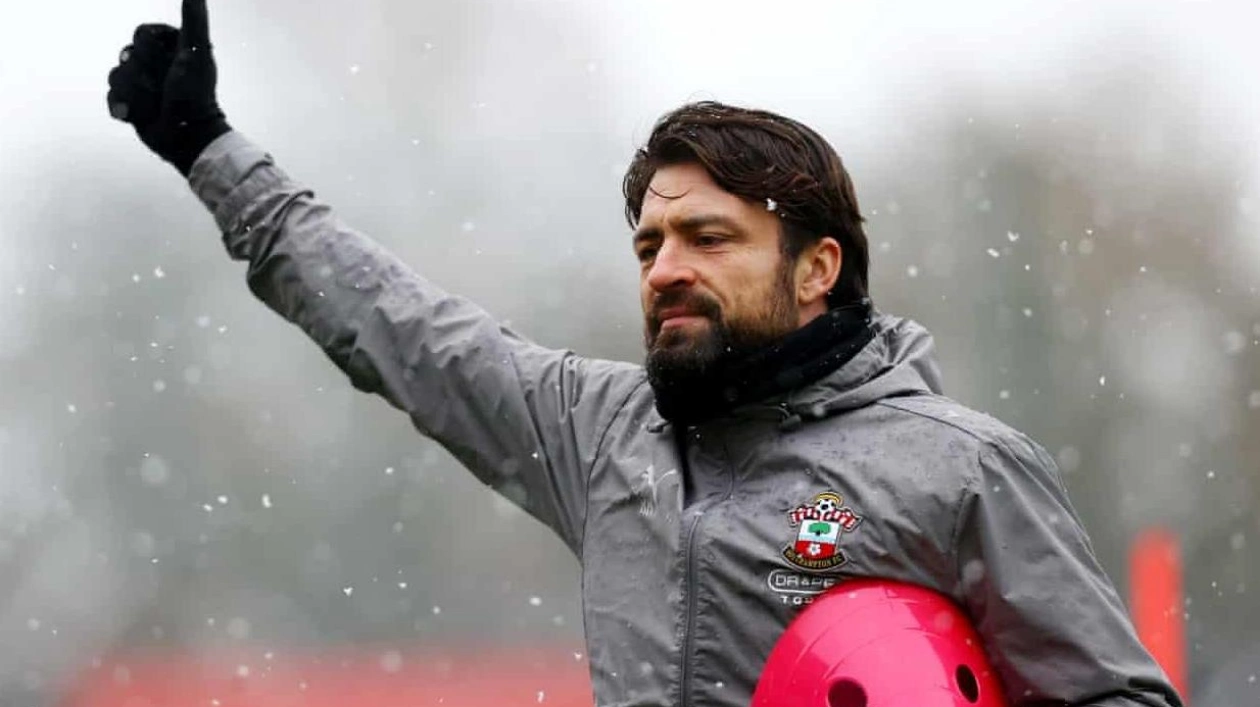There has been at least one victory to break the pattern, but Southampton’s triumph over Everton was swiftly followed by a loss to Wolves, leaving them at the bottom of the table during the international break. With only four points from 11 games, Southampton’s season has been bleak. They have only outperformed their opponents in expected goals (xG) in two matches this season—a 1-0 loss to Newcastle and a 1-1 draw at Ipswich. Barring a miracle, their fate seems sealed.
The familiar routine continues: Southampton plays short goal-kicks, maintains neat passing, and enjoys high possession at 56.6%, more than three other Premier League teams. However, they fail to capitalize on their chances, with the lowest percentage of shots on target this season. A mistake, whether by a player or the referee, leads to a conceded goal and a lost game. Manager Russell Martin, known for his rugged masculinity and emotional intelligence, speaks patiently about his commitment to playing football the right way. This stance garners mixed reactions: some support the journey over the destination, others believe it’s their best chance of survival, while some accuse Martin of naivety or arrogance.
The question of whether Martin should change his approach has no definitive answer. Football rarely offers clear solutions. Should a promoted manager adapt? It worked for Thomas Frank at Brentford, but sudden changes can be risky. Players assembled for a specific style may struggle to adapt. A simpler, risk-averse style might benefit a low-confidence team, but it’s unlikely to help if they abandon their strengths. Management often relies on confidence tricks, persuading players to believe in the process or the leader’s charisma. Altering the doctrine can lead to doubt.
The relationship between players and coaches often mirrors religious language, subtly shaping expectations. Modern managers are expected to have philosophies and evangelize them. Pep Guardiola, for instance, has spoken of maintaining Johan Cruyff’s legacy at Barcelona. Deviating from pre-stated ideals can make a manager seem like an apostate. Even self-assured managers like Louis van Gaal can feel uneasy stepping away from their path.
In reality, few managers are idealists. They may have personal moral codes, but most are pragmatists, playing the way they believe offers the best chance of success. Guardiola, 15 years after his tiki-taka success, now plays with a classic No 9 and experiments with a back four of central defenders. Martin’s approach for Southampton may or may not be correct, but the idea that he’s pursuing a self-defeating higher goal is fanciful. His aspirations for a glamorous job abroad after Vincent Kompany’s success at Bayern Munich are absurd.
The truth is, Martin’s playing style likely doesn’t matter; the squad simply isn’t good enough. Comparing this team to the 2012 promoted Southampton, the current squad lacks the caliber of players like Nathaniel Clyne, Luke Shaw, Rickie Lambert, and others. This could be an issue of recruitment. The gap between the Premier League and Championship has never been wider. Even with Nottingham Forest’s and Brighton’s strategies, staying up is incredibly difficult without enlightened recruitment. Southampton’s struggles are a symptom of football’s increasing financial stratification, and there’s little Martin can do to change that.
Source link: https://www.theguardian.com






